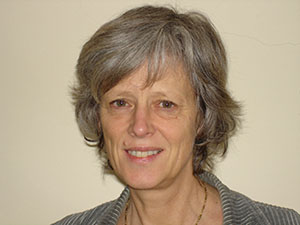ZonMw Pearl for toxicologist Geny Groothuis
Toxicologist Prof. Geny Groothuis from the Faculty of Mathematics and Natural Sciences at the University of Groningen has been awarded a ZonMw Parel or ‘Pearl’. Her research into innovative techniques and their implementation may well allow drastic reductions in the number of animal experiments required for toxicology research. The presentation ceremony took place during the 35th anniversary meeting of the Netherlands Society of Toxicology at the Koningshof Conference Centre in Veldhoven.

Animal studies less relevant
Animal studies remain important for testing the efficacy and safety of drugs; but only for want of something better, since animal experiments can only partly predict the effects in humans of some drugs. It is only now that we are slowly coming to understand more about the human body at the cellular level that alternatives are becoming available. Prof. Geny Groothuis is one of the pioneers in this field. She has been awarded a ZonMw Pearl for her many years of research into drug metabolism using special techniques and for her efforts to have these techniques approved and implemented throughout the world.
Liver slices
In order to study the metabolism, transport and toxicity of drugs, Groothuis and her research team make use of a method known as precision-cut tissue slices (PCTS). This method allows her to study the effect of drugs on slices of the liver (and other tissues) taken from laboratory animals and on slices of human tissues prepared in the same way. The slices represent a mini-model of the liver, making it possible to analyse the relevant processes in a very precise manner. They are cut with a specially designed tissue slicer that leaves the tissue structure intact and allows cells to stay alive for several days. The technique means that far fewer livers are needed, and therefore far fewer animals. A single liver can generate more than a hundred mini-models of the liver, thereby saving a similar number of laboratory animals. Groothuis is also working on techniques that allow the liver slices to be kept for longer periods of time – a major advance in drug studies given the current shortage of human tissues.
Application in the lab
Groothuis’s work is not only important because of her research methods and the results obtained with them. Just as important is her pioneering work in disseminating her innovative techniques. Many undergraduates and PhD students as well as colleagues have now been trained in her lab, and this has clearly helped the techniques to gain worldwide acceptance and implementation. She is further contributing to the spread of innovative techniques in the field of drug testing by investigating the possibilities of setting up a biobank for human tissue.
For more information (in Dutch):
- Pearl project Liver slices applied in the lab
- Programme More Knowledge with Fewer Animals (MKMD)
More news
-
14 January 2026
What the smell of the sea does to the clouds above Antarctica
